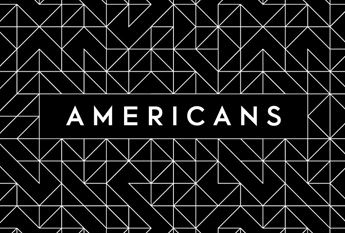

Voices and Votes: The 43 Naked Voters of 1858
March 13, 2023

A modern illustration of the voters crossing Ottawa Creek with only their hats visible by Shirley Swayne (1944 – 2004). Courtesy of Franklin County Historical Society.
How far would you go to exercise your right to vote? In 1858, a group of Franklin County Free Staters were so determined to cast their ballots against the pro-slavery Lecompton Constitution in the August 2, 1858, election that they let nothing – not even a high creek or lack of clothing – get in their way.
Voting was crucial and contentious in the Kansas Territory. In 1854, the Kansas-Nebraska Act opened the Kansas Territory to white settlement and left the decision over whether or not Kansas would be a free or slave state to the voters. As a result, pro-slavery advocates and free state supporters who opposed slavery in Kansas poured into the territory, displacing Indigenous populations and fighting with words and bloodshed for the fate of the new state.
“Missourians Going to Kansas to Vote” by Felix Octavius Carr Darley. Fearing that pro-slavery Missourians would try to interfere with the vote, the “Naked Voters” marched together to the polling station. Courtesy of kansasmemory.org, Kansas Historical Society, Copy and Reuse Restrictions Apply.
The Lecompton Constitution was a proposed state constitution drafted by pro-slavery supporters. The proposed constitution permitted slavery, did not allow free Black people to live in Kansas, and allowed only male citizens to vote. Fearing that pro-slavery Missourians might attempt to interfere with the election, the Franklin County men decided to march together to the polling station, which was set in a cabin as far west (and thus as far away from Missouri) as possible in the voting district.
Getting to the polling place proved to be a challenge due to weeks of heavy rains that had swollen area creeks past flood stage. The men, many of whom could not swim, crossed three smaller swollen streams before reaching the much larger Ottawa Creek. Their 17 horses were tied up by their bridles, and their tethering ropes were used to create one long rope. The group’s captain worked the rope across the fast-moving water, tying it to fallen trees and stumps so the others could get across to the other side. The men stripped off their clothes, tucking their shirts in their hats and leaving everything else on the bank before crossing the flooded Ottawa Creek.
“[The Naked Voters] understood one single vote could change the fate of the state of Kansas.”
Once on the other side, they pulled on their shirts and hats. The mostly naked voters reached the polling station and cast their votes.
As they returned from performing their civic duty, a kind German woman who did not require guests to dress for dinner fed them before they returned home. The pro-slavery issue was defeated.

“Naked Voters” W.W.H. Lawrence and G.W.E. Griffith. Lawrence documented the story of the Naked Voters. Courtesy of Franklin County Historical Society.
“The men who became known as the Naked Voters embraced the importance of every single one of their votes,” said Diana Staresinic-Deane, executive director of the Franklin County Historical Society. “They understood one single vote could change the fate of the state of Kansas. We hope the Naked Voters inspire us to appreciate that our votes count and our participation in the democratic process matters.”
The Franklin County Historical Society’s Old Depot Museum in Ottawa features the story of the “43 Naked Voters of 1858” in Barely Made It: The Naked Voters and Other Franklin County Stories of Democracy, the museum’s companion exhibition to the Voices and Votes: Democracy in America traveling exhibition. The museum hopes that sharing the story will spark conversations about how to participate in democracy and why it’s important. The exhibition will be on display August 19 – October 1, 2023. For events and times, visit www.olddepotmuseum.org.
The 43 Naked Voters
The following is a list of all of the people known to have voted in Ottawa Township on August 2, 1858. There are 46 names. It’s unclear which of the 43 out of 46 were the Naked Voters. Spelling may or may not be accurate. Names include:
Louis Allison
John Russel
Damon Higbie
William Carson
William Winston
Ehpraim Hackett
S.H. Moore
Joshua Carney
Ruben Hackett
GWE Griffeth
John W Higby
W.W.H. Lawrence
Henry Hall
Wm. M. Enman
T.N. Jennings
Albert Hanson
F. Bell
J.C. Boblet
John Forman
J.G. Bridol
Nathan Ames
Jacob Rynerson
Frances Armstrong
Joseph Black
A.D. Reed
Lewis Reed
Manuel Mowrey
James Pile
Isaiah Pile
John S. Mallory
George Boone
A.L. Thornbrugh
Anson Phillips
John Fulton
William Moore
James T. Moore
Jacob C. Switzer
Nathan M. Selby
John B. Elliott
William Thornbrugh
Henry Fisher
Jacob Fisher
Robert Gardner
Christopher Heck
J.J. Holbrook
Rudolphius Miller



